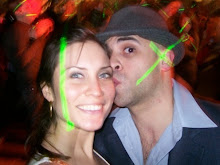Tanselle, Thomas. A Rationale of Textual Criticism. Philadelphia: University of Pennsylvania Press, 1989; second edition, 1992.
MAIN POINTS:
Chapter 1
The first chapter/lecture is yet another overview of what textual criticism is/does, etc:
- the uniqueness of literature compared to static forms of art. in painting and sculpture, art and artifact mostly coincide: do we not need to consider the "corporeal reality of literary works"?
-distinction between text and work. The work is unattainable (let us think of a platonic idea); any text, even the original manuscript, is a reproduction of the work.
-as editors, the key issue is "whether historical reconstruction or current effectiveness should take precedence, when the two don't seem to coincide".
Chapter 2
No text is ever definitive: "the world of documents is a world of imperfection."
-there are infinite potential versions in the author's mind even before he starts writing.
-"every artifact displays the residue of an unequal cotest: the effort of a human being to transcend the human" (64)
-There is an "inherent uncertainty" about all works using words as medium, since any document is the result of countless contingencies, and its preservation the result of countless more.
-stress on the necessity of "creative and informed judgement" on the part of the editor/critic.
-Textual criticism must aim to bring to the surface, rather than to conceal, the fluctuating dynamics (the history of its transmission and transcription)which lye beneath the staticity of any document:
"even though a document [...] possesses this claming and nourishing stasis, we must also recognize [...] that it reflects the pulsing and tortuous underside of stasis. [...] the text of documents preserve a partial record of that struggle, and the effort to make this record [..] known is a noble service."
Chapter 3
-textual criticism involves "the search for past intentions in all their rich complexity"
- the impossibility to escape authorial intention (T. antagonizes the concept of "shared" authorship)
-" there is still a single mind that provided the impetus for each work"
-authorial intention (the work that took shape in his mind) vs. authorial action (what he actually wrote)
-accept some revisions but not others?
-initial intention vs. final intention, and all the points in between (but there is also the last document they left, without regarding it as finished. i. e Wolfe or Hemingway)
- list of factors that influence an editor's decisions
I have found a paper which briefly sketches the recent developments in bibliographical studies, and includes a comparative evaluation of Tanselle's and McGann's work:
http://findarticles.com/p/articles/mi_m1387/is_3_52/ai_n6080405/pg_1
Observation: At pages 22-24, the author likens textual reproductions of literary works to musical scores (which like any text may be faulty or subject to textual criticism), and compares a reader to an orchestra conductor, since while reading (whether silently or aloud) he/she is "performing" the work according to his/her own understanding of it, sensibility, voice pitch, etc. This raised another question in my mind: since practically all works of literature are transcribed without any sort of guidelines as to how they should be read/performed, what "version" of the text does the work actually resemble? This is most problematic regarding prose: for example, in a 10-line period of Goethe's Werther, which secondary clause should be read with more emphasis and which with less, which should be read faster and which slower, etc. In poetry, at least for as long as it adhered to conventional forms, we do have a set of practical guidelines: metrics, rhythm, rhyme, line breaks, enjambements, divisions in stanzas, allitterations--nearly every figure of speach can be taken as an instruction for the phonic performance of the text. Yet there must be a difference between the way "shall I compare thee" sounds when read by me and when Shakespeare recited it for his friends. And was there not a difference between the way it must have sounded in WIllie's mind when he penned it and how it sounded, to his audience and even to him, when he spoke it aloud? (I know that is certainly the case for my own poems, which every now and then, to my utter disgust, I dare to read aloud... to myself). We may hear an audio recording of Robert Frost reading "Mending Wall", so must we assume THAT is the closest approximation to the actual, ineffable WORK? Would it not sound different even if Frost himself had recorded it 20 years later? Is, therefore, every act of "performing" a text a process of emendation? I don't know if these observations are cogent or interesting. But I do know that they have helped me understand, beyond the elusive and intuitive level, that whenever we read, we truly do engage in an act of textual criticism. thoughts/comments?
Monday, January 28, 2008
Subscribe to:
Post Comments (Atom)

No comments:
Post a Comment